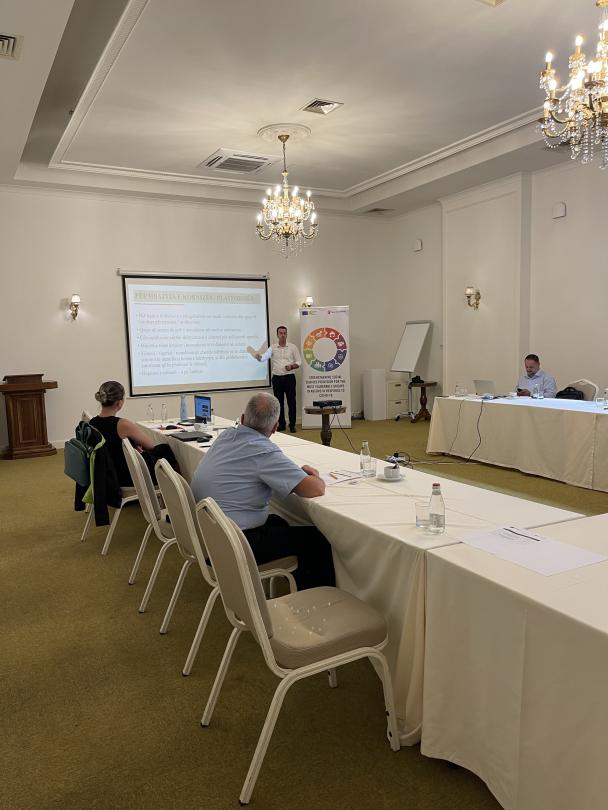Bridging the Data Gap: Transforming Social Services through Data Collection

In a significant leap toward strengthening social services and ensuring the welfare of vulnerable groups in Kosovo, a recent workshop convened key stakeholders from Centers for Social Work, government institutions, and the Kosova Agency of Statistics. The central focus of these workshops centered around the collection and analysis of data pertaining to social service users. These gatherings played a crucial role in discovering the challenges and deficiencies that currently hinder the efficiency of this process. The overarching aim extends beyond addressing these issues; it seeks to pave the way for a future characterized by data-driven initiatives that hold the potential to enhance the lives of those in need.
The backdrop against which these workshops is the EU-funded initiative titled ‘Strengthening Provision of Social Services for the Most Vulnerable Groups in Kosovo, in Response to COVID-19’. This initiative stands as a firm commitment to elevate and support those who are most vulnerable to the repercussions of the pandemic.

One of the noteworthy outcomes of this workshop is the formulation of a meticulously crafted framework designed to bridge the existing gaps in data collection. This framework embodies principles of innovation, collaboration, and, most crucially, an unwavering dedication to safeguarding the data and privacy of individuals involved. With this framework firmly in place, government institutions will wield a potent tool not only to showcase their efforts but also to facilitate a strategic, evidence-based approach in advancing their work.
The workshop has ignited a spark of inspiration among participants, nurturing a collective vision of a brighter future in which government institutions not only efficiently provide social services but also tailor them intricately to meet the unique needs of each vulnerable group.
This collaborative endeavor underscores the pivotal role of partnerships and open dialogue in driving substantive change. By uniting diverse perspectives and expertise from Centers for Social Work, government institutions, and the Kosova Agency of Statistics, a comprehensive approach is being embraced to ensure the enhancement of social services.


